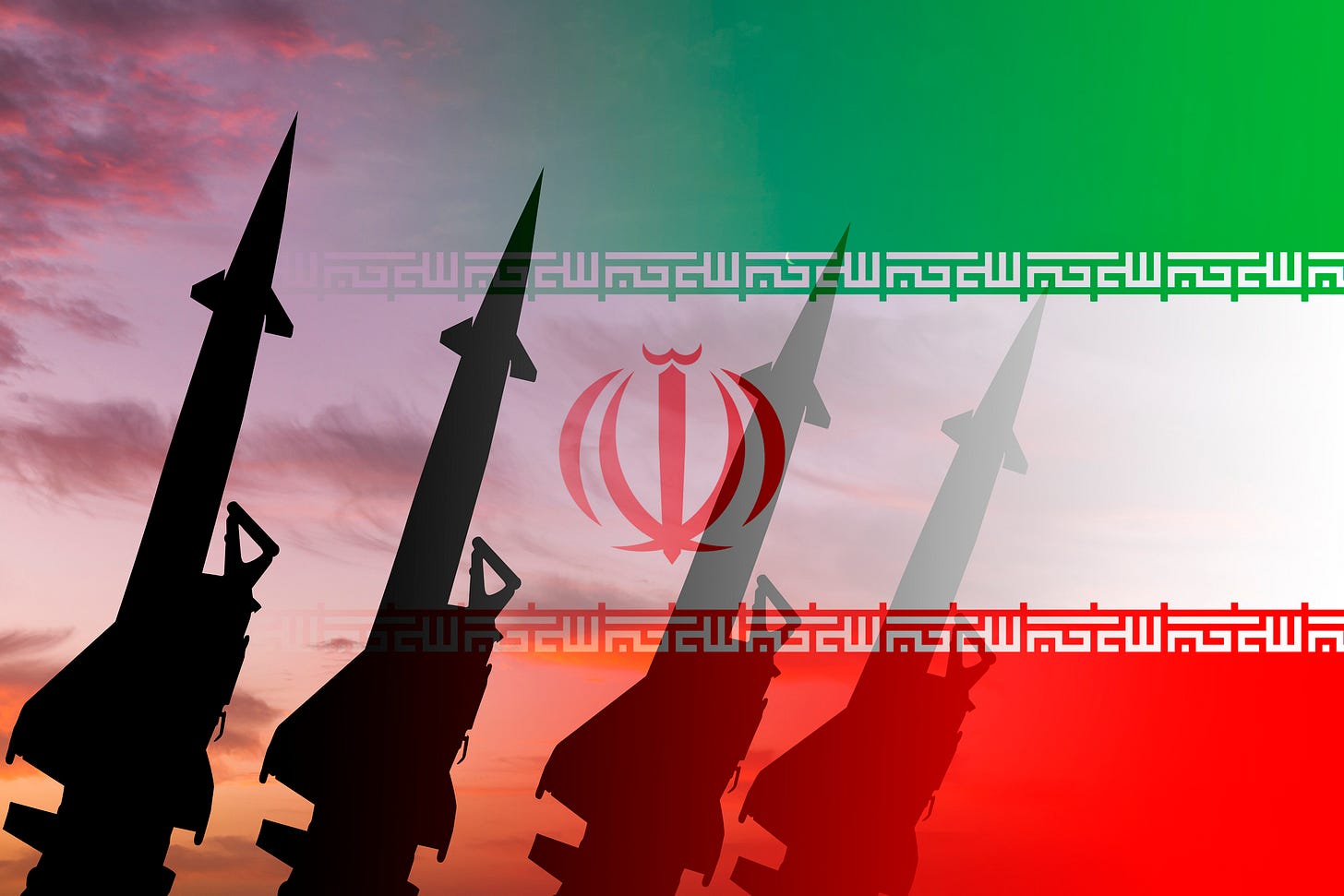Iran Should Abolish Its Nuclear Program
The country is likely to be more secure without one
Amid all the discussion of Iran’s nuclear program, and Israeli and U.S. efforts to destroy it, one fact remains largely ignored: Iran scarcely needs a nuclear arsenal.
To begin with, any detonation of such a weapon against Israel, which reportedly has hundreds of nuclear weapons and clearly has the ability and credibility to deliver them, would be a disaster for Iran. Israel’s inevitable counterattack would likely destroy not only Iran’s unpopular regime, but also the ancient Persian civilization in which it is embedded.
Second, Iran doesn’t need to keep a few nuclear weapons around to deter a nuclear attack initiated by Israel out of the blue. Israel is much more likely to apply its superiority in conventional weaponry, which, as has been seen of late, can be very damaging and much more focused. Israel would have no need to escalate to the nuclear level.
And third, the value of nuclear weapons to deter conventional attacks is severely undercut by recent experience. Although Israel (and the U.S.) might have hesitated if Iran had had nuclear weapons, they likely would have attacked anyway, relying on their ability to devastate Iran in retaliation for any use of Iran’s nukes. It is also relevant to note that nuclear weapons do not have an impressive record at deterring conventional attacks, as the United Kingdom found in 1982 when Argentina seized Britain’s Falkland Islands, leading to a short war fought entirely with conventional weapons. In the present case, Israel has repeatedly been attacked by non-nuclear countries and entities; its extensive nuclear arsenal appears to have been irrelevant to its responses, which have relied entirely on conventional weapons and methods.
The Deal
Accordingly, Iran and its regime might well be more secure if the country abandoned its nuclear weapons program, which has proved to be absurd, expensive, useless and ultimately the chief reason for (not a deterrent of) armed attacks by alarmed foes such as Israel and the United States.
One possible solution would be for Iran to accept a version of Donald Trump’s proposed deal. According to its terms, Iran would credibly abandon its nuclear weapons program (perhaps while retaining the “right” to publicly reverse that development) and would be welcomed, like Germany and Japan after World War II, into a global system that promises dignity and economic growth and is sanctions-free. As often noted, Iran has the potential to be a wealthy country. That goal seems to be genuinely popular with Iran’s population, some 80% of whom, some studies suggest, are restive over the current regime’s corruption and incompetence. And the process would likely also receive enthusiastic and productive support from Iran’s extensive and often well-heeled diaspora.
The deal might also involve some reduction or at least attenuation of Iran’s support for various anti-Israel proxy forces in the Middle East, such as Hamas in Gaza and Hezbollah in Lebanon. Prospects for such a reduction are enhanced today not only because that policy has never been very popular in Iran, but also because the proxies (like Iran itself) have been severely discomfited by Israeli attacks of late.
Iran’s Potential Objections
For the deal to be consummated, however, negotiators are up against some deep concerns from the Iranian regime.
First, Iran has reason to doubt Trump’s reliability: After all, although a nuclear deal went into effect in 2016 under the Obama administration, Trump abruptly withdrew from it when he became president for the first time the following year. Trump might be more reliable now, however, because he would benefit greatly, both domestically and internationally, if such a danger-deflating deal were consummated. (He might even be successful in gaining the Nobel Peace Prize that he is said to covet.) Moreover, he seems to be sincere in his utter contempt for the absurdity of the Iran-Israel confrontation in which, as he recently put it pungently, “We basically have two countries that have been fighting so long and so hard that they don’t know what the fuck they’re doing. Do you understand that?”
Second, the regime in Iran might be wary of the prospect that while a deal might eventually lead to prosperity for the country, it might also lead to the development of a theocracy-challenging middle class. Indeed, a deal seems the most likely route to successfully achieve the “regime change” in Iran that is so fondly desired by many outsiders.
A version of Trump’s deal seems a rational solution to Iran’s massive social and economic problems and only requires a clear concession from Iran to cease the costly development of useless nuclear weapons. The final problem in accepting this deal is that, as Thomas Friedman of The New York Times has recently suggested, Iran, like Israel, is “led by religious nationalists who think God is on their side.” This perspective could have negative consequences, as suggested by the reaction of the Iranian regime after being attacked by Saddam Hussein’s Iraq in 1980. Saddam quickly concluded that the attack was a mistake and sought to obtain a face-saving agreement allowing Iraq to withdraw. But that development, however rational, was quashed by Iran’s theocratic ruler, Ayatollah Ruhollah Khomeini, who piously (and spookily) declared: “Even our total defeat in this war shall be a blessing from the Almighty and a sign of His Wisdom which we cannot fully understand.” The war, disastrous for both sides, therefore continued for nearly a decade—though eventually Khomeini did overcome his fatalistic anxieties and agree to a deal, while declaring that process to be akin to drinking poison.
Trump’s deal, then, offers a rational solution to a problem that scarcely exists. But that doesn’t guarantee its acceptance.




